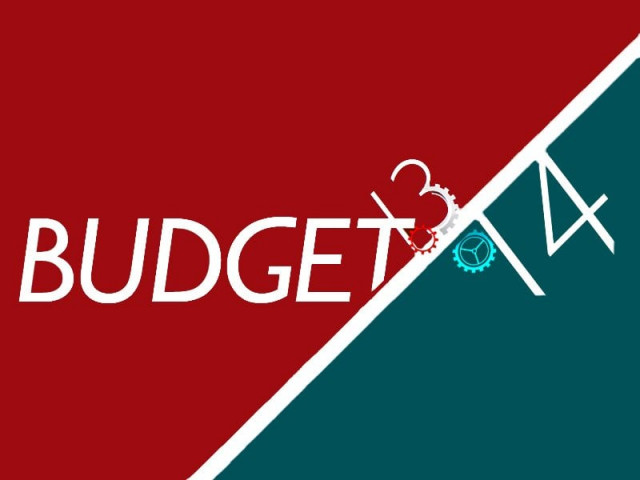Prominent economist takes shot at Federal Budget 2013-14
Dr Khan questions the govt’s optimism on many fronts, including the power crisis.

The projected budget deficit for fiscal year 2014 has been estimated at about Rs1.6 trillion, or about 6.3% of the size of the economy. PHOTO: FILE
The government’ promises that it will redress the energy crisis by building new dams and paying off the dues of independent power producers has given hope to many, but an economist pointed out here on Friday that the real issue is not the demand and supply of electricity, but mismanagement on part of the government itself.
National University of Science and Technology’s School of Business Dean Dr Ashfaq Hassan Khan and senior finance reporter Mehtab Haider took the stage here during the South Asia Free Media Association for a post-budget discussion titled ‘Stability and Economic Growth’.
“One of the prime issues, which is not less than a challenge for the new government, is developing public-private sector partnerships or linkages and restoring their confidence, which is totally absent right now,” Dr Khan said.
He was surprised that the projected budget deficit for fiscal year 2014 has been estimated at about Rs1.6 trillion, or about 6.3% of the size of the economy. The main reason for his disbelief was that the current year’s deficit has clocked in at an astronomical 8.8% of gross domestic product, which puts the economy in very bad shape for next year. “Greece is currently facing a deficit of over 8% and they are in a shambles. The same thing is going to happen with Pakistan, because the growing gap between expenditures and expenses is twice high as that of any other South Asian country,” he said.

To fill this gap, Dr Khan recommended that the government needs to go for domestic resources through the National Savings Scheme. In the same breath, he acerbically cautioned that it should now be renamed the National Borrowings Scheme, pointing out that the government no longer saves anything, but borrows endlessly. He also took a shot at commercial banks, asking how they were registering over 44% growth in their earnings, even as the country’s economy trudges along at a paltry 3%.
Dr Khan lambasted the former finance minister for his practices, holding him responsible for creating circular debt to the tune of over Rs60-70 billion. “Electricity production from oil used to cost Rs4.57 in 2007. It is because of him (Abdul Hafeez Sheikh) that electricity production from oil now costs Rs16 per unit,” he added.
Talking about the risks of the budget on the revenue side, Khan pointed out that the tax collection target given to the Federal Board of Revenue (FBR) is Rs2.475 trillion, while actual collection for this year has clocked in at Rs1.881 trillion so far. “I personally think actual collection may not reach beyond Rs1.97 trillion, which is around Rs89 billion more than last year,” he said. “Can the FBR really collect Rs500 billion more than that figure in 2013-14, when it has so far collected only Rs89 billion more this year?” he asked.
On non-tax revenues, Khan said there are risks attached to including Rs112 billion on account of the Coalition Support Fund in the budget. He also talked about the auction of the 3G licence, which is hoped to fetch another Rs 120 billion. He pointed to the risks attached, asking whether there is enough appetite among investors for such licences, given that Sing Tel recently backed out from a deal to buy out Warid Telecom. “If the reply is yes, then will they [bidders] be able to pay the entire amount in one go?” he added.
Published in The Express Tribune, June 29th, 2013.
Like Business on Facebook, follow @TribuneBiz on Twitter to stay informed and join in the conversation.



















COMMENTS
Comments are moderated and generally will be posted if they are on-topic and not abusive.
For more information, please see our Comments FAQ